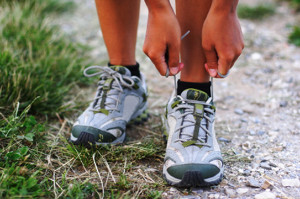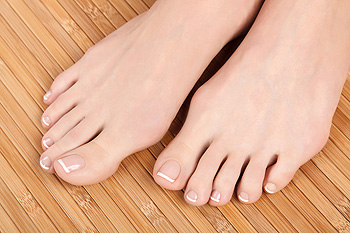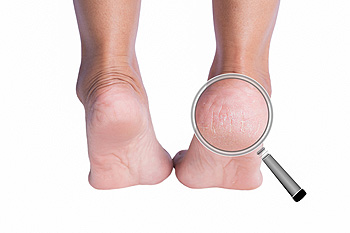
People are constantly wearing improperly-fitting shoes. Though it isn’t hard, picking the right shoes does require keeping a few things in mind.
Shoe stores have rulers so you can get an exact measurement of your feet. Be sure to always measure your feet with your shoes on. Measuring just your foot will give you a shoe size that is 1-2 inches too small for picking the right size shoe.
To ensure that your toes won’t be cramped, make sure there is wiggle room. Approximately one inch should be between your toes and the tip of your shoe. It is easy to tell if your shoes are too tight, because you will start to experience pain, blisters, and swelling.
Additionally, do not always assume your shoe size will be the same at every store. Manufacturers sometimes run differently, and your size will vary from brand to brand. Make sure the stores you purchase from have return policies, in case there is a problem.
Rather than shoe shopping in the morning, it is advised to shop for shoes later in the day. Your feet will swell as the day passes. If shoes are purchased in the morning, they may not be as snug as they should be. Furthermore, not all two feet are the same size. Therefore, accommodations may be necessary.
An overall concern in buying shoes is making sure they are comfortable and supportive. There is no such thing as a shoe being ‘broken in’. If they are uncomfortable at the store, they likely will always be uncomfortable.
Since we do a lot of walking, it is important that we pick the right shoes. Our feet will benefit from this, and we will be happier and healthier because of it.
 Research has shown the feet may change sizes as the aging process occurs. Many people may select shoes by the size that is indicated, despite the fact they may not fit properly. It’s important to try both shoes on, which may aid in determining if these are the correct shoes to purchase. Adequate space up to a half inch above the longest toe should be present for maximum comfort while standing up. It’s important to consider the material of the shoe, which may consist of a soft and flexible consistency that ideally should match the shape of the foot. Many people try shoes on that may fit too tightly, and their expectation may be that the shoes will stretch over time. This is considered to an erroneous method of buying shoes and a properly fitted shoe will feel good at the time it is tried on. If you would like additional information on how to buy shoes that fit properly, please consult with a podiatrist who can properly guide you.
Research has shown the feet may change sizes as the aging process occurs. Many people may select shoes by the size that is indicated, despite the fact they may not fit properly. It’s important to try both shoes on, which may aid in determining if these are the correct shoes to purchase. Adequate space up to a half inch above the longest toe should be present for maximum comfort while standing up. It’s important to consider the material of the shoe, which may consist of a soft and flexible consistency that ideally should match the shape of the foot. Many people try shoes on that may fit too tightly, and their expectation may be that the shoes will stretch over time. This is considered to an erroneous method of buying shoes and a properly fitted shoe will feel good at the time it is tried on. If you would like additional information on how to buy shoes that fit properly, please consult with a podiatrist who can properly guide you.
Getting the right shoe size is an important part of proper foot health. Seek the assistance of Dr. Edward D. Hutson from Easton, PA. . Our doctor will provide the care you need to keep you pain-free and on your feet.
Getting the Right Shoe Size
There are many people who wear shoes that are the incorrect size, negatively affecting their feet and posture. Selecting the right shoes is not a difficult process, so long as you keep several things in mind when it comes to choosing the right pair.
As our feet hold our body weight and keep us moving, it is important to treat them right. Picking the right pair of shoes can provide your feet comfort and mobility without pain.
If you have any questions, please feel free to contact our offices located in Easton, and Northampton, PA . We offer the newest diagnostic and treatment technologies for all your foot care needs.
Diabetes can cause two problems that can potentially affect the feet: Diabetic neuropathy and Peripheral Vascular Disease. Diabetic neuropathy occurs when nerves in your legs and feet become damaged, which prevents you from feeling heat, cold, or pain. The problem with diabetic neuropathy is that a cut or sore on the foot may go unnoticed and the cut may eventually become infected. This condition is also a main cause of foot ulcers. Additionally, Peripheral vascular disease also affects blood flow in the body. Poor blood flow will cause sores and cuts to take longer to heal. Infections that don’t heal do to poor blood flow can potentially cause ulcers or gangrene.
There are certain foot problems that are more commonly found in people with diabetes such as Athlete’s foot, calluses, corns, blisters, bunions, foot ulcers, ingrown toenails, and plantar warts. These conditions can lead to infection and serious complications such as amputation. Fortunately, proper foot care can help prevent these foot problems before they progress into more serious complications.
Each day you should wash your feet in warm water with a mild soap. When you finish washing your feet, dry them carefully especially between your toes. You should also perform daily foot inspections to ensure you don’t have any redness, blisters, or calluses. Furthermore, if you are diabetic, you should always wear closed-toed shoes or slippers to protect your feet. Practicing these tips will help ensure that your feet are kept healthy and away from infection.
If you have diabetes, contact your podiatrist if you have any of the following symptoms on your feet: changes in skin color, corns or calluses, open sores that are slow to heal, unusual and persistent odor, or changes in skin temperature. Your podiatrist will do a thorough examination of your feet to help treat these problematic conditions.
 When the sugar levels in the blood become elevated, the medical condition that is known as diabetes may occur. The feet may become affected as a result of this, and proper care must be given, which may avoid uncomfortable and painful foot ailments. These may include diabetic neuropathy, which may make it difficult to feel any wounds or cuts that may be present, or peripheral vascular disease, which may limit blood flow to the feet. Research has shown that foot conditions that are associated with diabetes will benefit from effective treatment methods when implemented. These may include properly taking care of wounds or infections that may have developed, in addition to possibly wearing a boot, which may relieve pressure off the foot. If you are a diabetic patient, it is suggested that you consult with a podiatrist as quickly as possible who can properly monitor this condition, which may affect the feet.
When the sugar levels in the blood become elevated, the medical condition that is known as diabetes may occur. The feet may become affected as a result of this, and proper care must be given, which may avoid uncomfortable and painful foot ailments. These may include diabetic neuropathy, which may make it difficult to feel any wounds or cuts that may be present, or peripheral vascular disease, which may limit blood flow to the feet. Research has shown that foot conditions that are associated with diabetes will benefit from effective treatment methods when implemented. These may include properly taking care of wounds or infections that may have developed, in addition to possibly wearing a boot, which may relieve pressure off the foot. If you are a diabetic patient, it is suggested that you consult with a podiatrist as quickly as possible who can properly monitor this condition, which may affect the feet.
Diabetic foot care is important in preventing foot ailments such as ulcers. If you are suffering from diabetes or have any other concerns about your feet, contact Dr. Edward D. Hutson from Easton, PA. . Our doctor can provide the care you need to keep you pain-free and on your feet.
Diabetic Foot Care
Diabetes affects millions of people every year. The condition can damage blood vessels in many parts of the body, especially the feet. Because of this, taking care of your feet is essential if you have diabetes, and having a podiatrist help monitor your foot health is highly recommended.
The Importance of Caring for Your Feet
Patients with diabetes should have their doctor monitor their blood levels, as blood sugar levels play such a huge role in diabetic care. Monitoring these levels on a regular basis is highly advised.
It is always best to inform your healthcare professional of any concerns you may have regarding your feet, especially for diabetic patients. Early treatment and routine foot examinations are keys to maintaining proper health, especially because severe complications can arise if proper treatment is not applied.
If you have any questions please feel free to contact our offices located in Easton, and Northampton, PA . We offer the newest diagnostic and treatment technologies for all your foot and ankle needs.
Read more about Diabetic Foot CareCracked heels can make life very frustrating and embarrassing when displaying the bare feet. Aside from being unpleasing to the eye, they can also tear stockings and socks and wear out shoes at a faster rate. When severe, cracked heels may cause pain or infection.
Cracked heels are a problem for those who are athletic, those who may walk a lot, and those who have especially dry skin. Those who use medication that dry the skin, those who swim often, wearing certain types of shoes, and those who are diabetic may have trouble with cracked heels. Seniors whose skin produces less oil may also have trouble with cracked feet. There is no one way to develop cracked feet, and there is no cure.
Today, the market consists of numerous products that have a variety of ingredients to promote healing. Some of these are over-the-counter. Others are prescribed by a doctor, especially for those who have chronic dry feet and heels.
Some doctors recommend wearing socks at night for those with rough skin. This helps further healing, and helps creams stay on longer and better absorb into the skin.
One way to alleviate dryness that causes cracked heels is by using moisturizers both day and night. Another way is to make sure the skin is clean and dry at all times. Using a pumice stone to buff away dead skin before putting on moisturizer can also help. Cracked heels will not respond to the cream unless the outer layer of skin is first removed through exfoliation. After exfoliation, lotion or ointment will be absorbed by the skin more easily.
Foods that produce healing and balance can also help the skin from within. Everything that is put into the body can either help it or hurt it. Taking supplements of omega-3 fatty acids and zinc can also be very beneficial.
Nevertheless, not all products are guaranteed to help treat cracked feet. Seeing a professional is best if other treatments options were unsuccessful. A podiatrist should be able to give the best advice to help with this problem.
 If you suffer from cracked heels, you may be familiar with the pain and discomfort that is often associated with this condition. There are several reasons linked to developing cracked heels, including a loss of moisture in the skin as the aging process occurs, and medical conditions that may include thyroid issues and vitamin deficiencies. Additionally, people who are obese may suffer from this condition and this may be a result of the excess weight the heels must endure. Research has shown the importance of wearing shoes that offer maximum support in the heel area, which may diminish the possibility of developing this painful condition. There may be measures that can be implemented to prevent this ailment from occurring, which may include washing and drying the feet thoroughly, followed by utilizing a good moisturizing cream. If you have cracked heels, it is suggested to speak to a podiatrist to discuss additional treatment options.
If you suffer from cracked heels, you may be familiar with the pain and discomfort that is often associated with this condition. There are several reasons linked to developing cracked heels, including a loss of moisture in the skin as the aging process occurs, and medical conditions that may include thyroid issues and vitamin deficiencies. Additionally, people who are obese may suffer from this condition and this may be a result of the excess weight the heels must endure. Research has shown the importance of wearing shoes that offer maximum support in the heel area, which may diminish the possibility of developing this painful condition. There may be measures that can be implemented to prevent this ailment from occurring, which may include washing and drying the feet thoroughly, followed by utilizing a good moisturizing cream. If you have cracked heels, it is suggested to speak to a podiatrist to discuss additional treatment options.
Cracked heels are unsightly and can cause further damage to your shoes and feet. If you have any concerns, contact Dr. Edward D. Hutson from Easton, PA. . Our doctor can provide the care you need to keep you pain-free and on your feet.
Cracked Heels
Cracked heels appear unappealing and can make it harder for you walk around in sandals. Aside from looking unpleasant, cracked heels can also tear stockings, socks, and wear out your shoes. There are several methods to help restore a cracked heel and prevent further damage.
How Do You Get Them?
Dry skin is the number one culprit in creating cracked heels. Many athletes, walkers, joggers, and even swimmers suffer from cracked heels. Age and skin oil production play a role to getting cracked heels as well.
Promote Healing
Over the counter medicines can help, especially for those that need instant relief or who suffer from chronic dry feet.
Wear Socks – Wearing socks with medicated creams helps lock in moisture.
Moisturizers – Applying both day and night will help alleviate dryness which causes cracking.
Pumice Stones – These exfoliate and remove dead skin, which allows for smoother moisturizer application and better absorption into the skin.
Change in Diet
Eating healthy with a well-balanced diet will give the skin a fresh and radiant look. Your body responds to the kinds of food you ingest. Omega-3 fatty acids and zinc supplements can also revitalize skin tissue.
Most importantly, seek professional help if unsure how to proceed in treating cracked heels. A podiatrist will help you with any questions or information needed.
If you have any questions, please feel free to contact our offices located in Easton, and Northampton, PA . We offer the newest diagnostic and treatment technologies for all your foot care needs.
Read more about Solutions for Cracked Heels